Creatine Monohydrate
Micronized Creatine Monohydrate
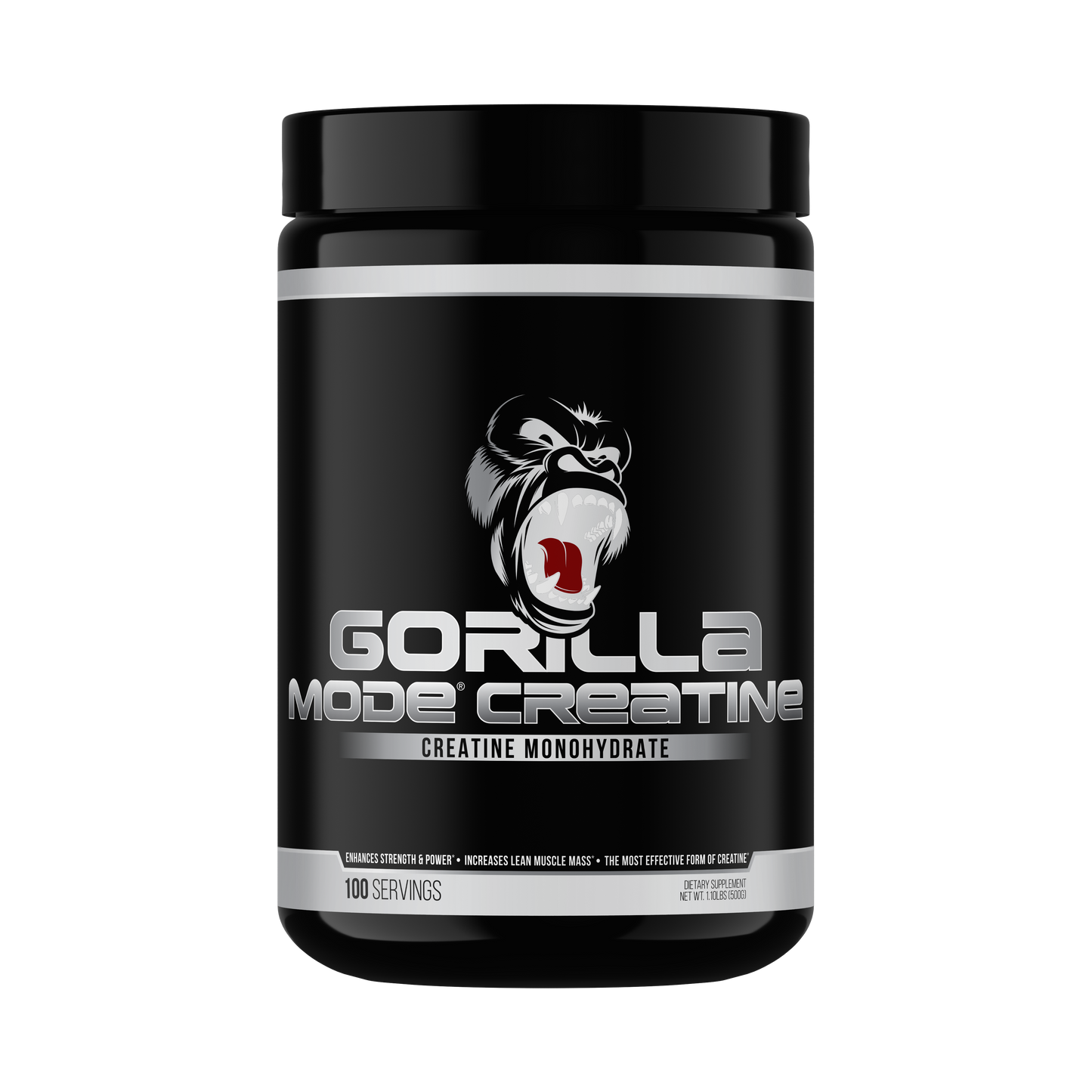
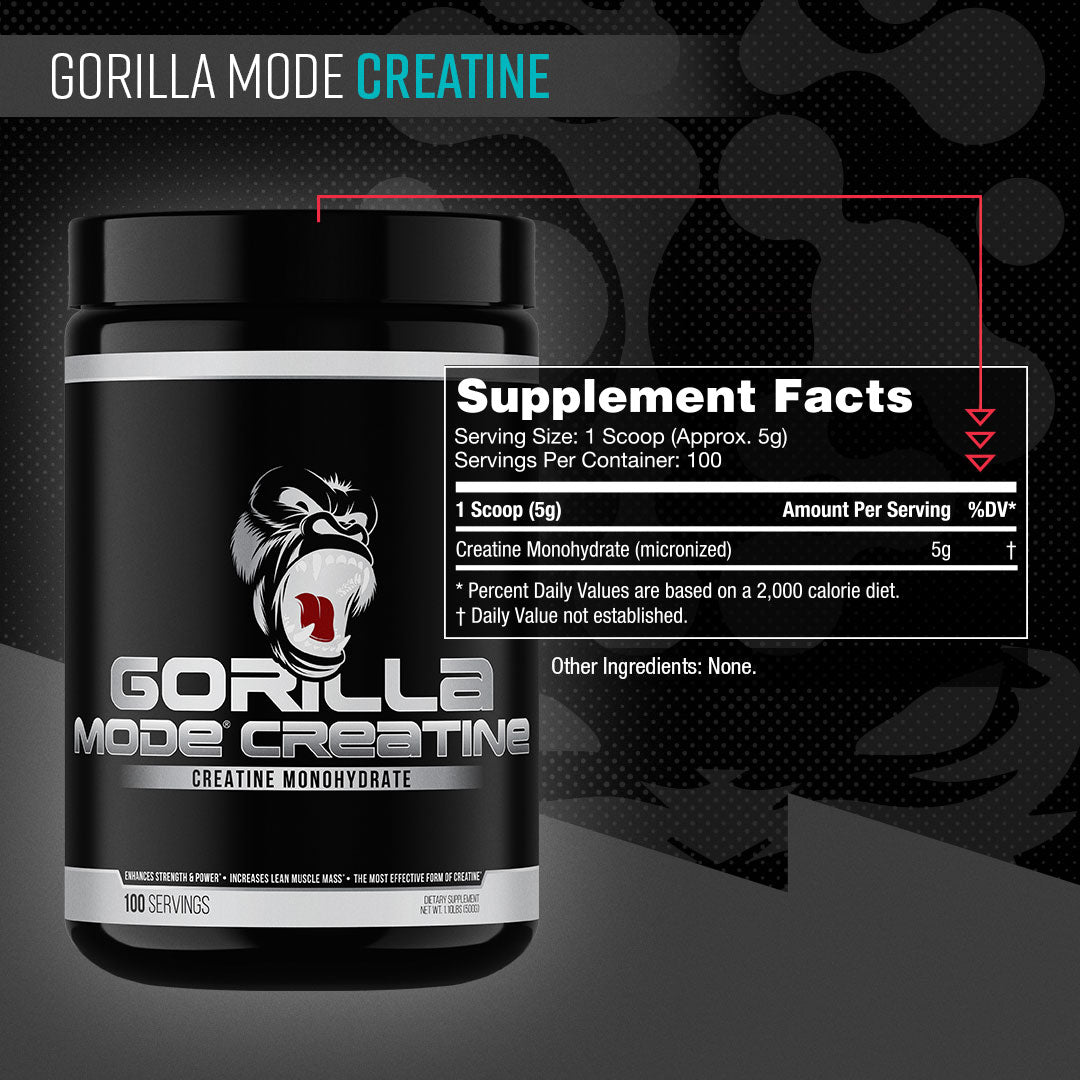
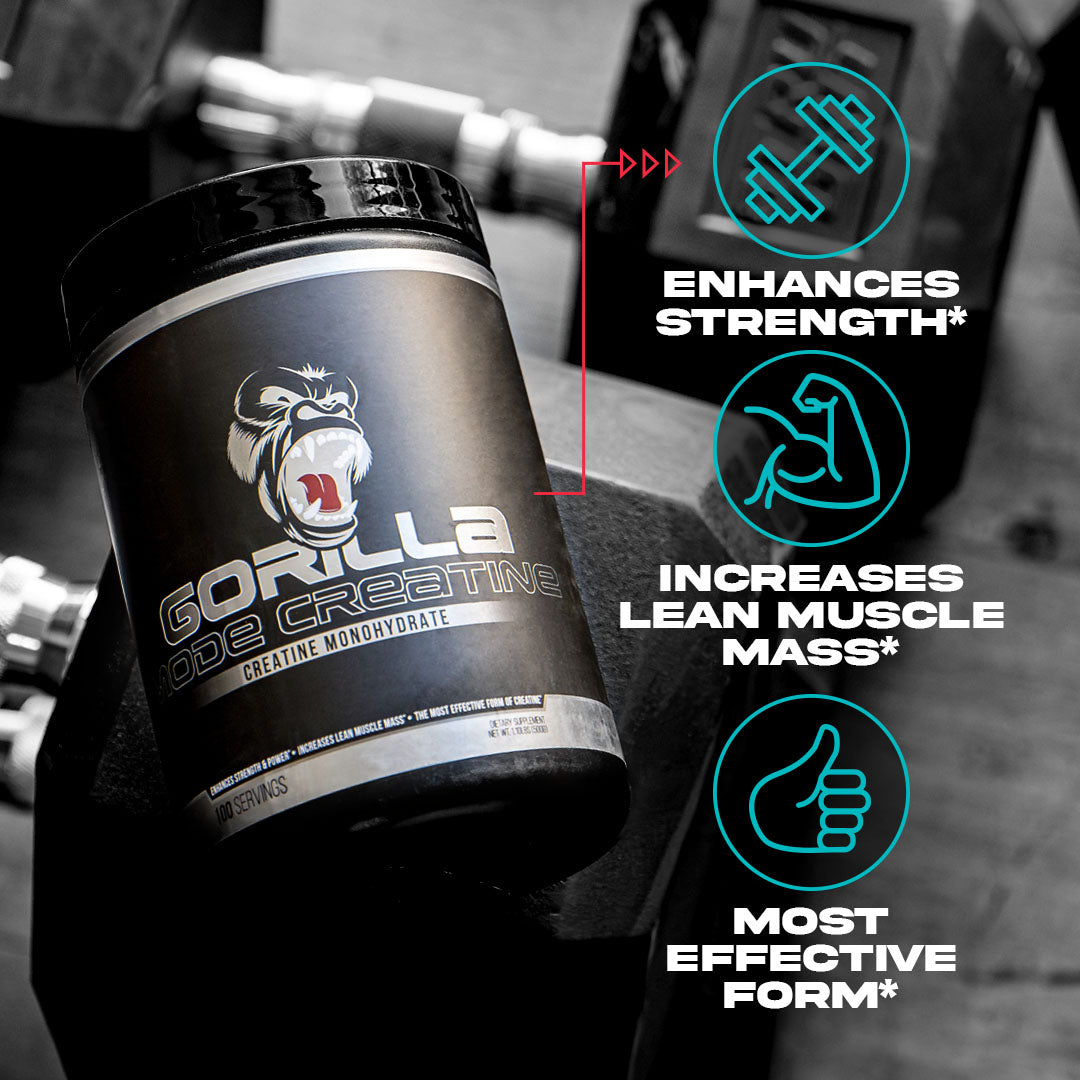
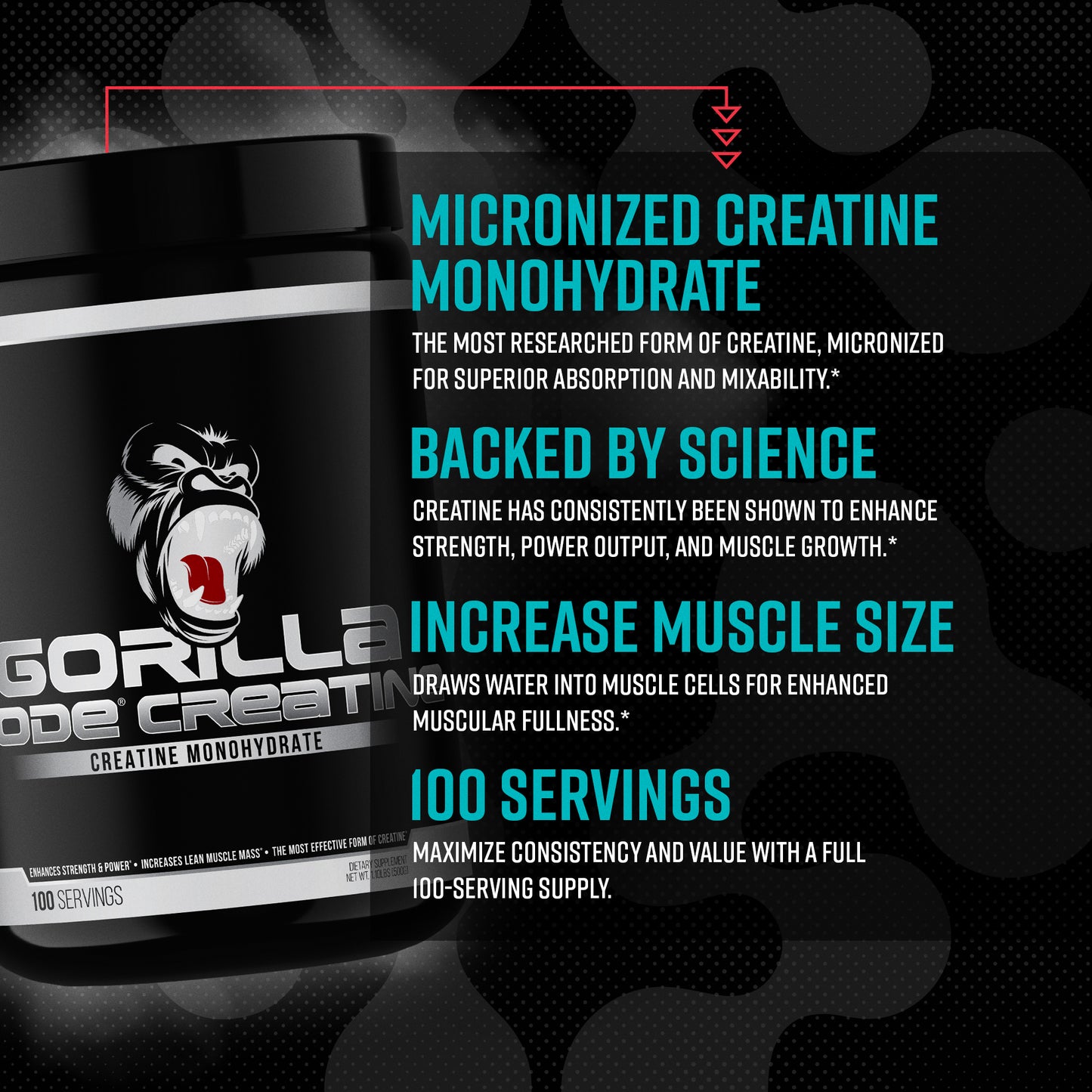
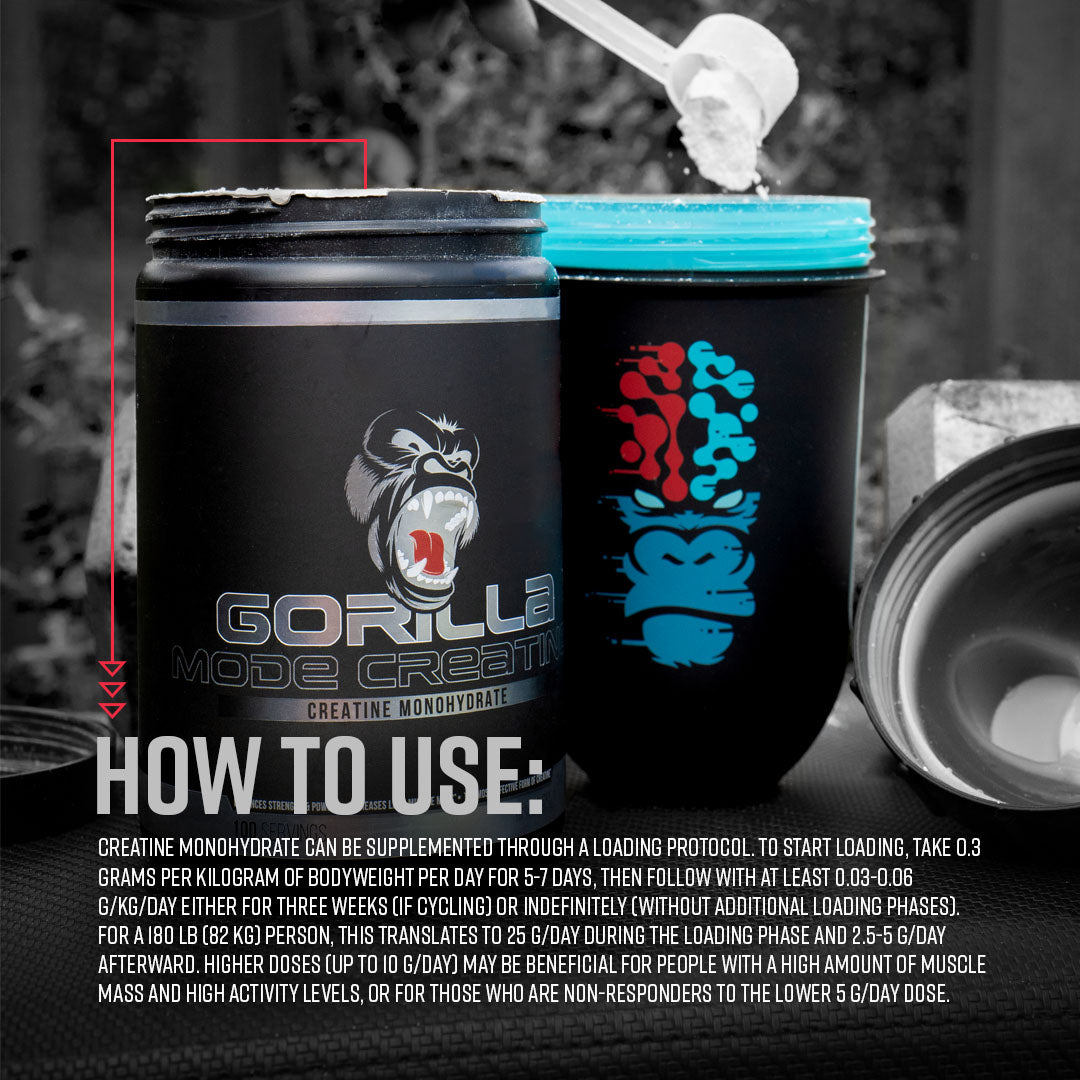
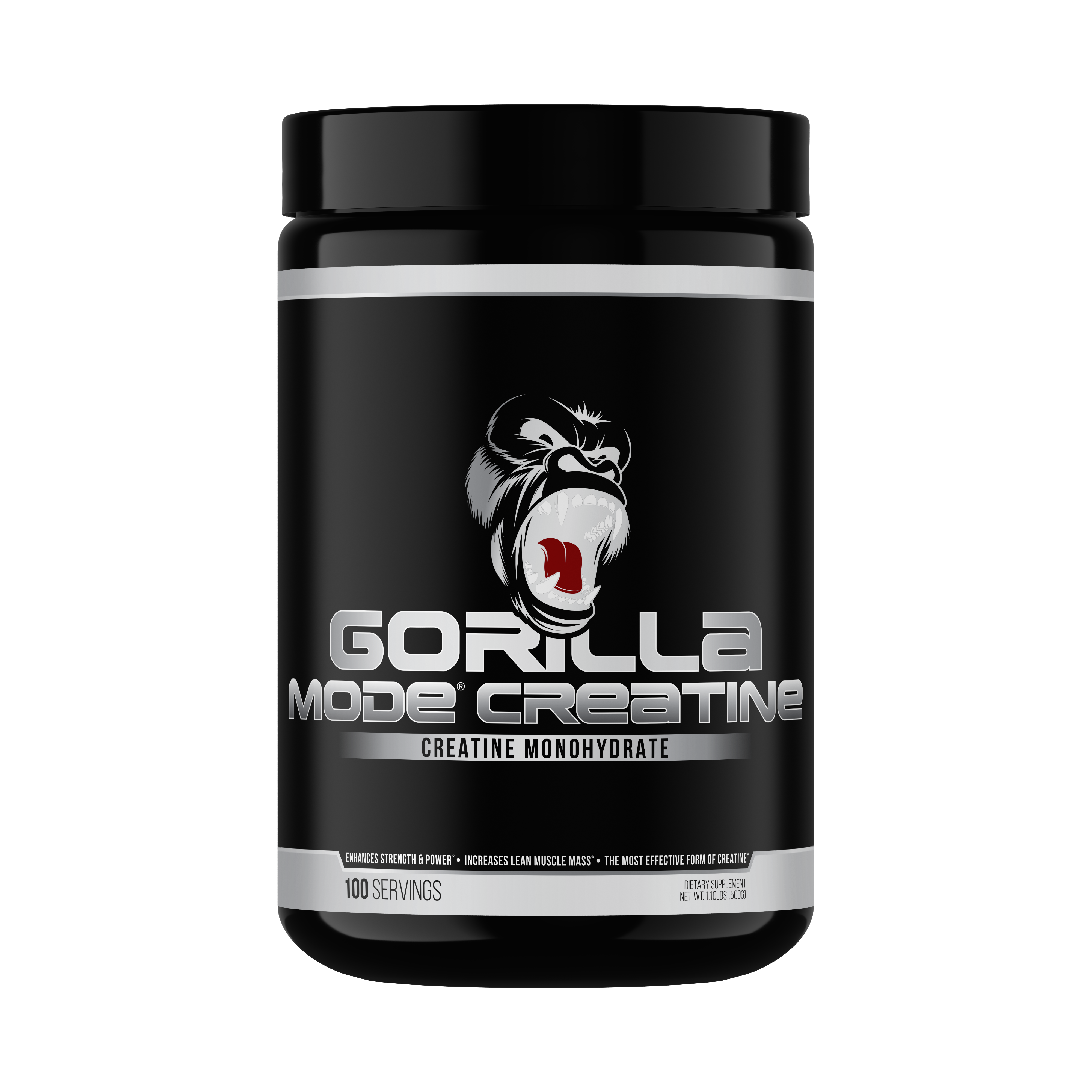
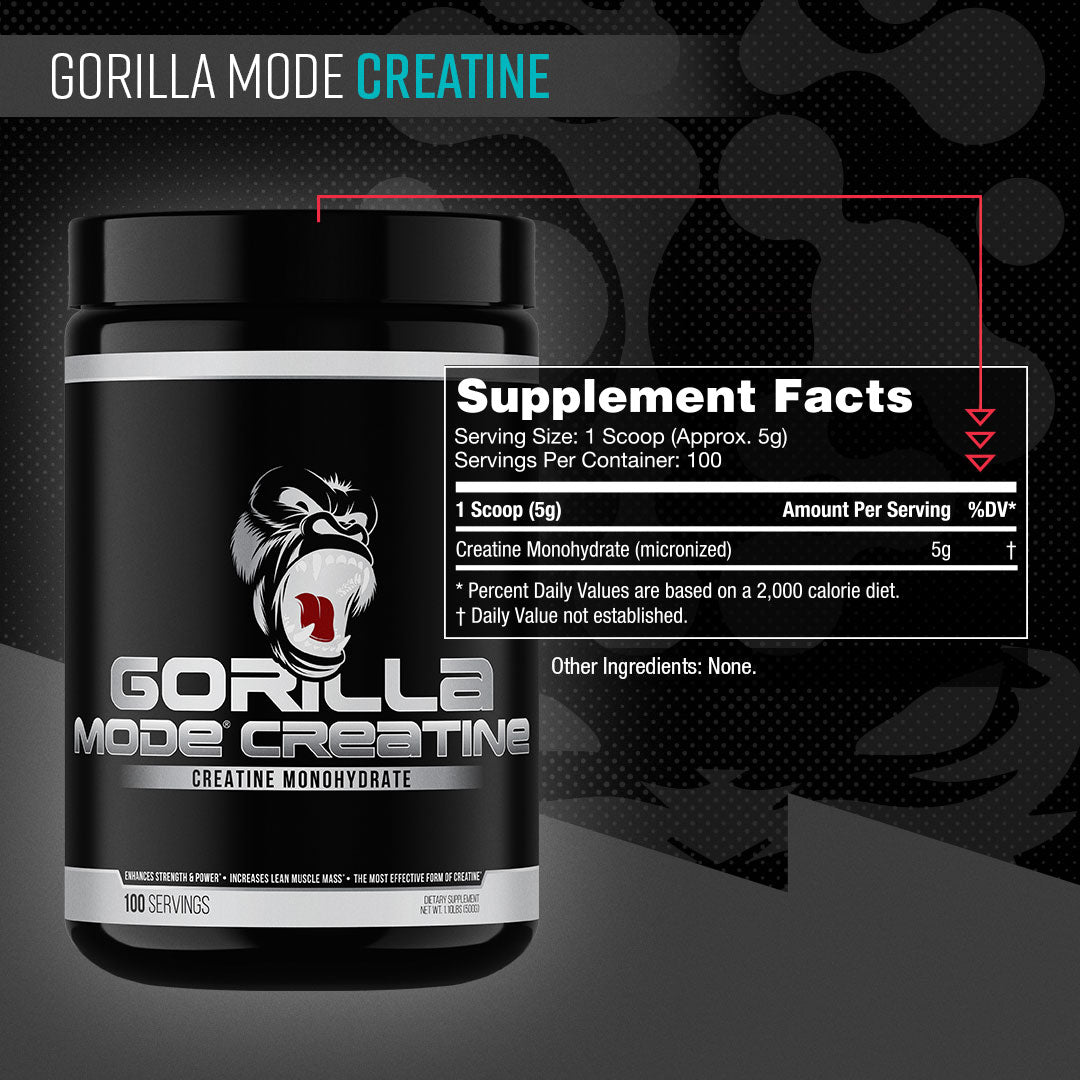
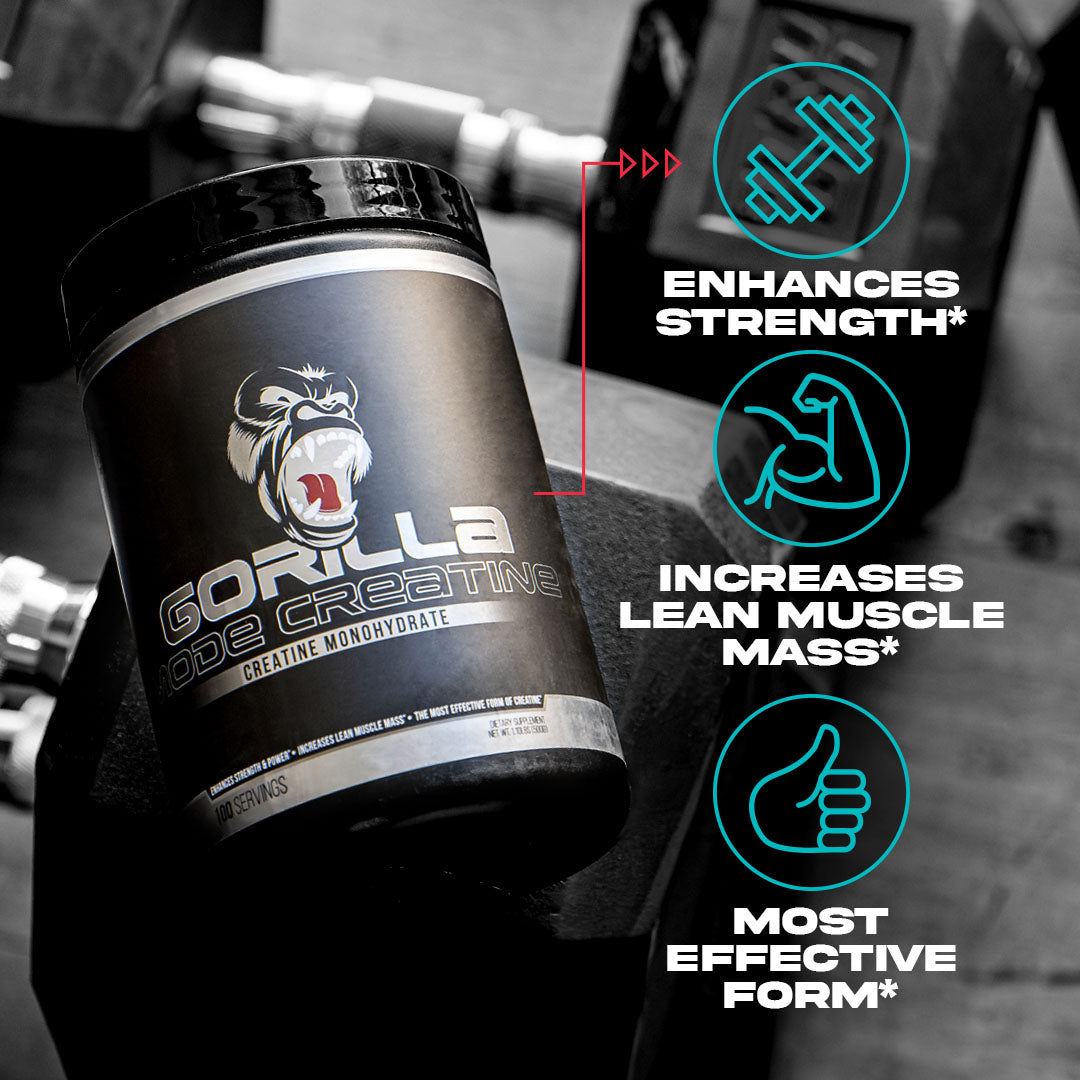
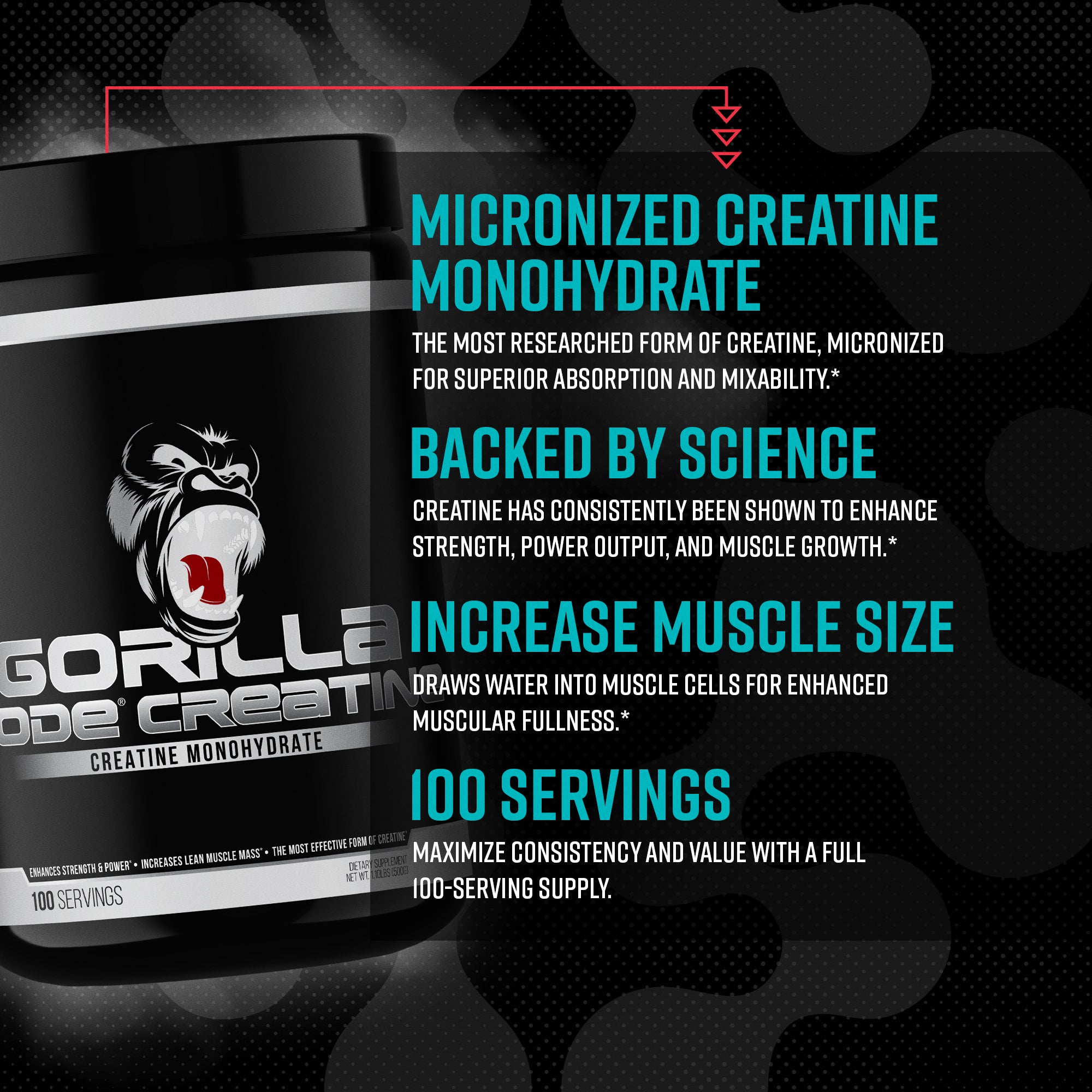
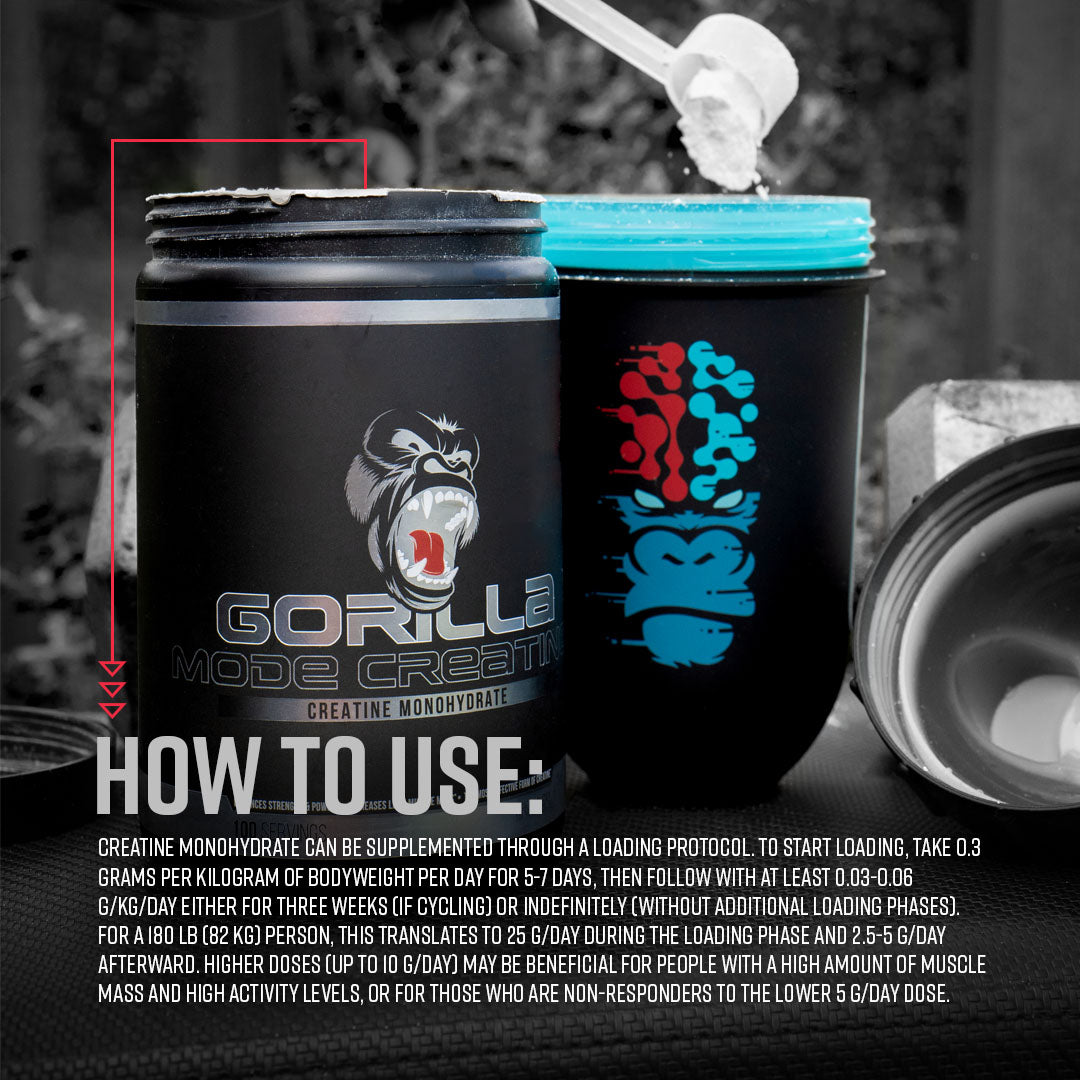
Creatine is a fantastic ingredient in both a pre-workout and post-workout context for improving strength, power output and muscle size [R, R, R, R]. However, we already include the full saturation dosage of creatine in our pre-workout and post-workout products.
This is why we wanted to create a standalone creatine product to allow you to take your daily creatine dosage on days you’re not taking the post-workout or pre-workout.
Creatine’s effect on strength is facilitated by increasing the body’s stores of phosphocreatine, which is then used during high-intensity exercise to produce ATP which is considered the energy currency of the cell [R].
In addition, you can expect a significant increase in muscle size and body weight over time via the process of osmosis, which draws water into the muscle [R].
As one of the most studied and effective performance-enhancing supplements, it’s important to ensure that creatine is taken every day at a full saturation dose to ensure that your muscles are full!
Suggested Usage
Creatine Monohydrate can be supplemented through a loading protocol. To start loading, take 0.3 grams per kilogram of bodyweight per day for 5-7 days, then follow with at least 0.03-0.06 g/kg/day either for three weeks (if cycling) or indefinitely (without additional loading phases). For a 180 lb (82kg) person, this translates to 25 g/day during the loading phase and 2.5-5 g/day afterward. Higher dosages (up to 10 g/day) may be beneficial for people with a high amount of muscle mass and high activity levels, or for those who are non-responders to the lower 5 g/day dose.
What's the right dosage for you? It depends:
What Does Creatine Do?
Creatine increases your body’s phosphocreatine stores, helping produce more ATP for high-intensity exercise. This boosts strength, power, and performance while drawing water into muscles to support size and growth.
When To Take Creatine?
For best results, consistency is more important than timing. However, many users prefer to take it shortly before or immediately after their workout to maximize uptake when muscles are primed. On non-training days, you can take it at any time that is convenient for you. Creatine doesn’t have any stimulatory or drowsy effect so whether taking it morning or night it shouldn't affect your sleep or productivity.
How Much Creatine Should I Take?
Most people do best with 3–5 g of creatine per day, which is enough to keep muscles saturated over time. Some choose to start with a short loading phase of ~20–25 g per day for 5–7 days to speed up saturation, then continue with 3–5 g daily. Larger athletes or those with higher training demands may benefit from up to 10 g per day.
Does Creatine Cause Hair Loss?
There’s no direct evidence that creatine causes hair loss. The concern largely stems from a single 2009 study that found increased levels of DHT (a hormone linked to hair loss in genetically susceptible men) in a small group of rugby players taking creatine. However, the study didn’t measure actual hair loss, and follow-up research has not confirmed this effect. To date, no studies have demonstrated that creatine directly causes or accelerates hair loss.
Does Creatine Make You Gain Weight?
Yes, creatine can cause weight gain, but in a good way. It increases intracellular hydration, pulling water into your muscles and making them look fuller. Over time, this process also supports greater muscle size and body weight through improved performance and growth.
Is Creatine Safe?
Creatine monohydrate is one of the most studied and safest supplements available. A small number of individuals, particularly those with lower stomach acid levels, may experience mild bloating or digestive discomfort. If that is the case, our Creatine HCl offers a highly soluble alternative that is easier on the stomach while delivering the same proven benefits.
100 Servings / Powder
Third Party Testing
We prioritize ingredient transparency, ensuring that our customers have complete access to information about the ingredients in our products, empowering them to make informed choices about their health and wellness.
The primary purpose of third party testing is to verify the identity, potency, purity, and composition of the supplement. It serves as an official record that the product has undergone rigorous testing and meets specific criteria set forth by regulatory authorities or industry standards.